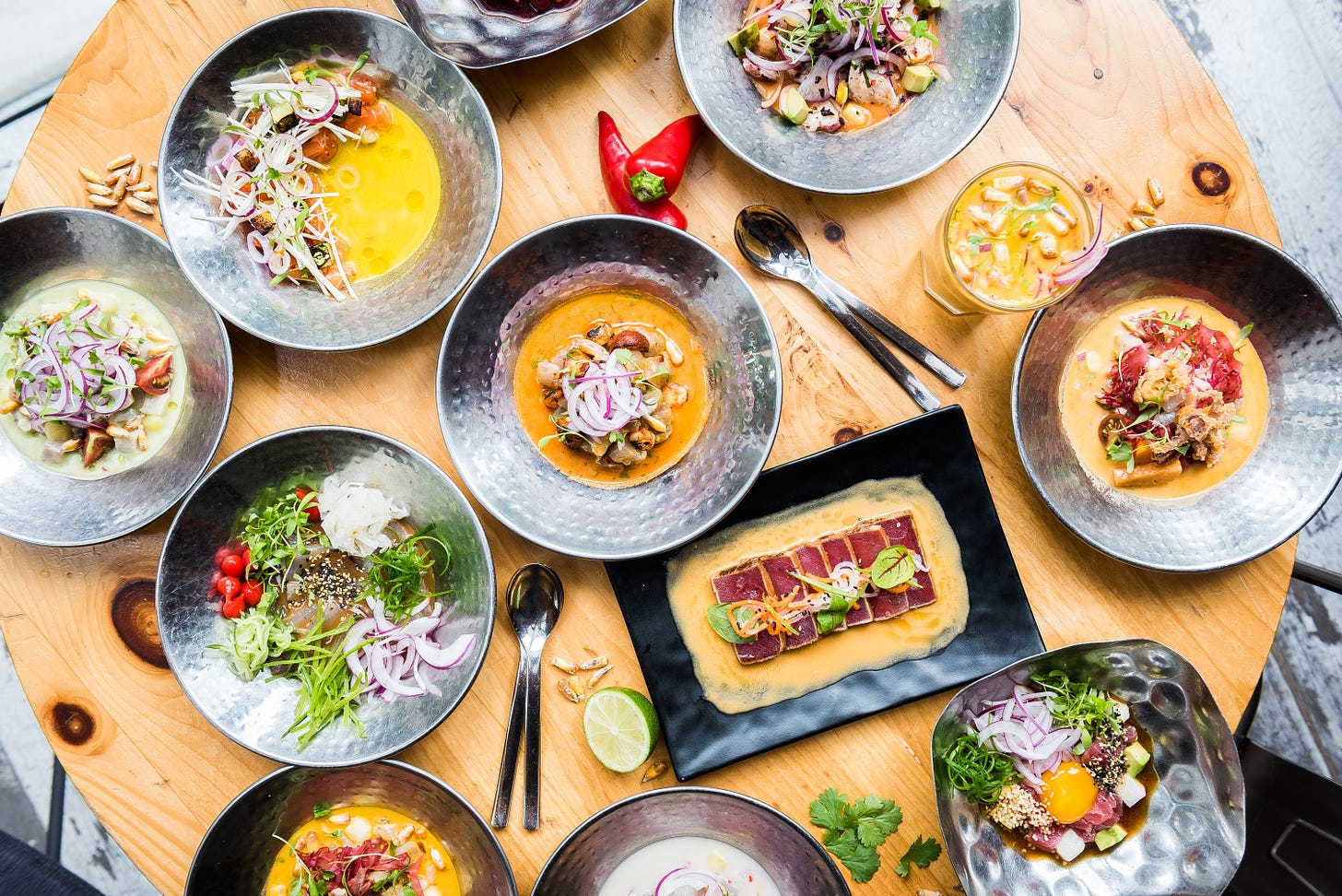Preserving the culture of Peru
Ceviche has been added to the UNESCO list of intangible cultural heritage
Guys, I’m really excited to tell you about something today. It happened last month but with the holidays we were all so busy so I didn’t have the time to write about it. I hope you’ll be as excited as I am!
Of course you all know what I’m talking about…UNESCO (the United Nations Educational, Scientific, and Cultural Organization) has added traditional Peruvian ceviche to its list of intangible cultural heritage!
If you don’t know about UNESCO’s work on intangible cultural heritage, it’s really fascinating. They aren’t just interested in preserving buildings and monuments and objects. They also want to make sure that we as humanity remember and preserve traditional practices, rituals, knowledge, festivals—and yes, flavors and culinary traditions.
In the past, they have recognized harissa, the chili pepper paste of Tunisia; ceebu jën, a fish, rice, and vegetable dish from Senegal; and hawker culture in Singapore.
And now late last year, they added ceviche from Peru to the list! From the UNESCO site, we can read why:
“Ceviche is a traditional dish in Peru prepared with raw fish marinated in lemon, seasoned with chili pepper and salt and accompanied with locally grown produce. The dish is consumed both on a daily basis and during festivities. It is associated with moments of celebration and social gathering, as well as with ritual celebrations, particularly the festivity of Saint Peter, patron saint of artisanal fishers. Ceviche can be made at home or sold in traditional spaces such as cevicherías, where the work of traditional female cooks stands out. Its preparation and consumption entail specific practices, knowledge and meanings at each stage, from fishing to cultivating the ingredients and preparing the dish.”
Okay, so maybe not everyone is as excited about the preservation of cultural traditions and histories as I am…but maybe you agree with me that ceviche is one of the most amazing dishes ever, and it deserves to be given as much recognition as possible. The history and culture of it, the deep respect for fresh fish and seafood, the simple ingredients that build into something larger as a whole…I do think it’s one of the most perfect dishes.
Last summer, I shared a recipe for our Ceviche Clásico at China Chilcano, my Peruvian restaurant in Washington, DC. It’s still one of my favorite ceviches…if you didn’t make it then, you should try it now! I think it’s always in season, there’s no reason to not make it in the middle of winter.
A perfect fish dish for a hot day
Hello my friends! Today, I am answering another of your cooking questions. This one comes from Emily who writes: “Dear José, I have read a few different recipes for ceviche and I am confused. What is the proper amount of marination time for fish or shrimp? Do you have a recipe? I have read that less time, like 5 minutes is better to keep the fish fresh and keep it from firming up. I’ve read that you should marinate it for up to four hours! And everything in between.”
Friends. What intangible cultural heritage do you think should be protected from your own piece of the world? Are there hyper-local specialties, traditions, practices that you think needs to be preserved? In Spain, UNESCO has protected flamenco (which we talked about a few weeks ago); ringing bells by hand; and the famous Fallas festival of Valencia (which my daughters and I visited on our show, José Andrés and Family in Spain). But nothing culinary yet! Not the traditions of making paella in Valencia, or winegrowing in La Rioja or Penedès, or cheesemaking in Asturias, or even the culture of tapas throughout the country! The closest it came was recognizing the importance of the “Mediterranean diet” in 2013…but of course, we share that distinction with six other Mediterranean countries!
So, what do you think should be preserved?






Baklava!!!
I would think paella should be recognized.